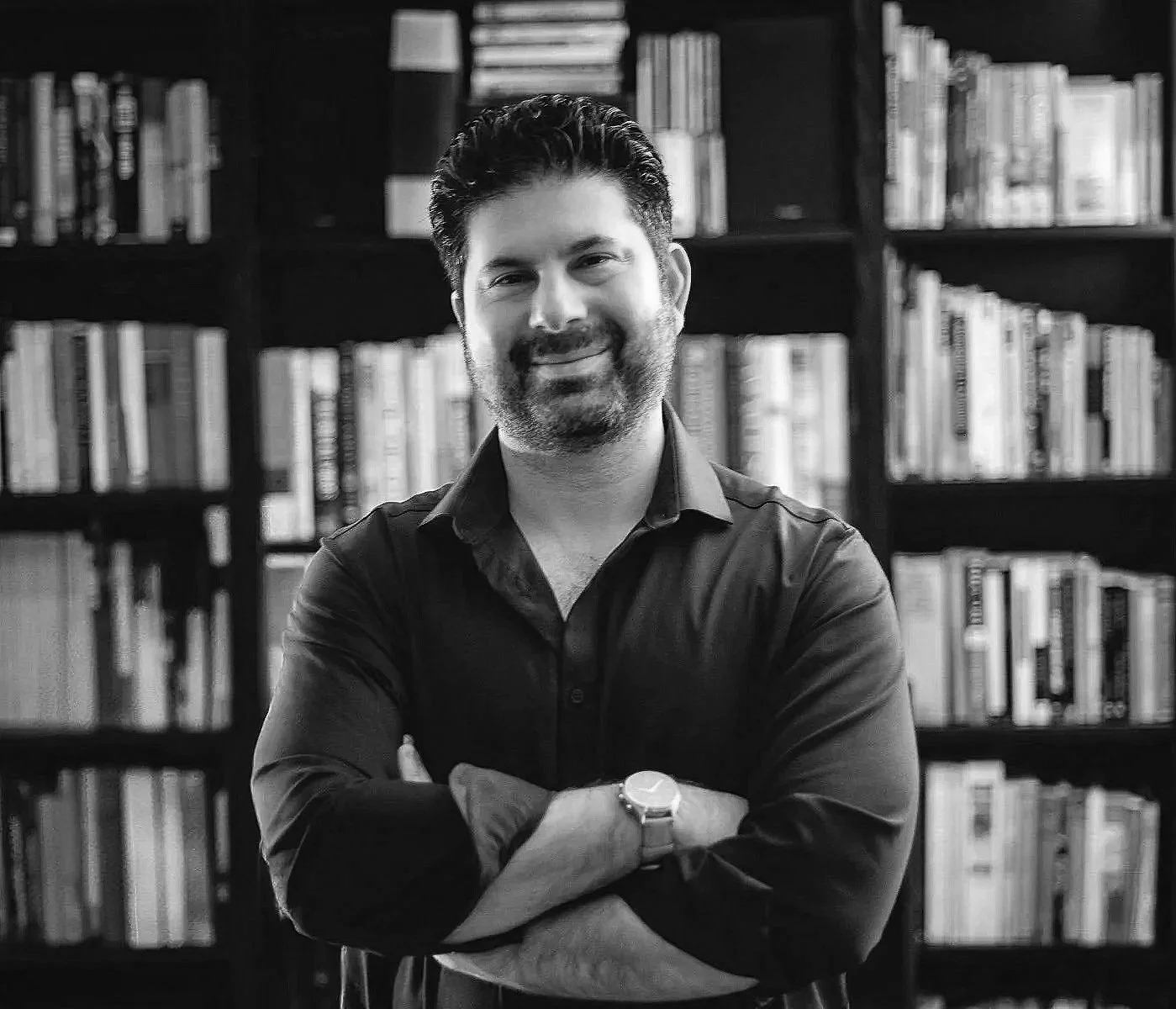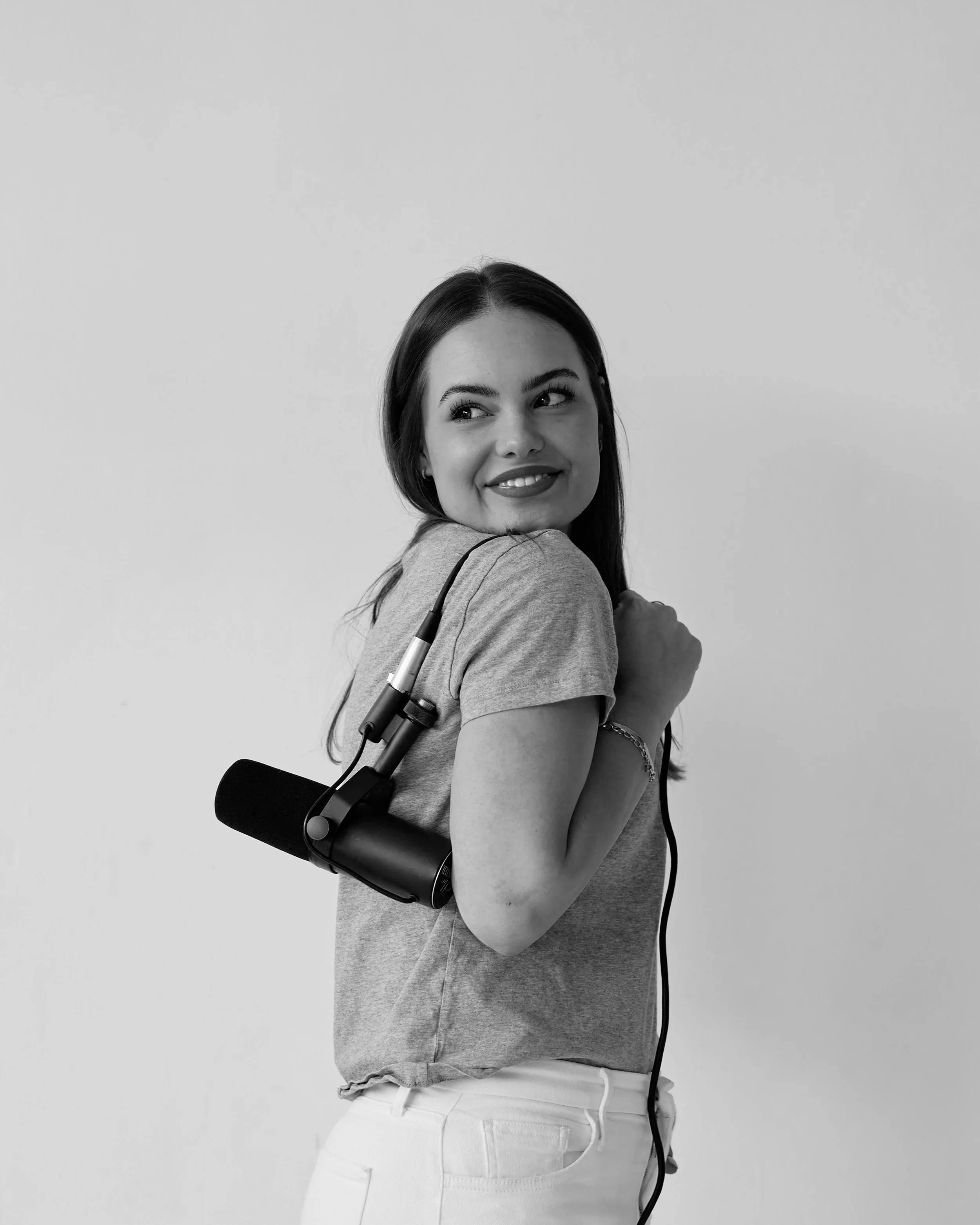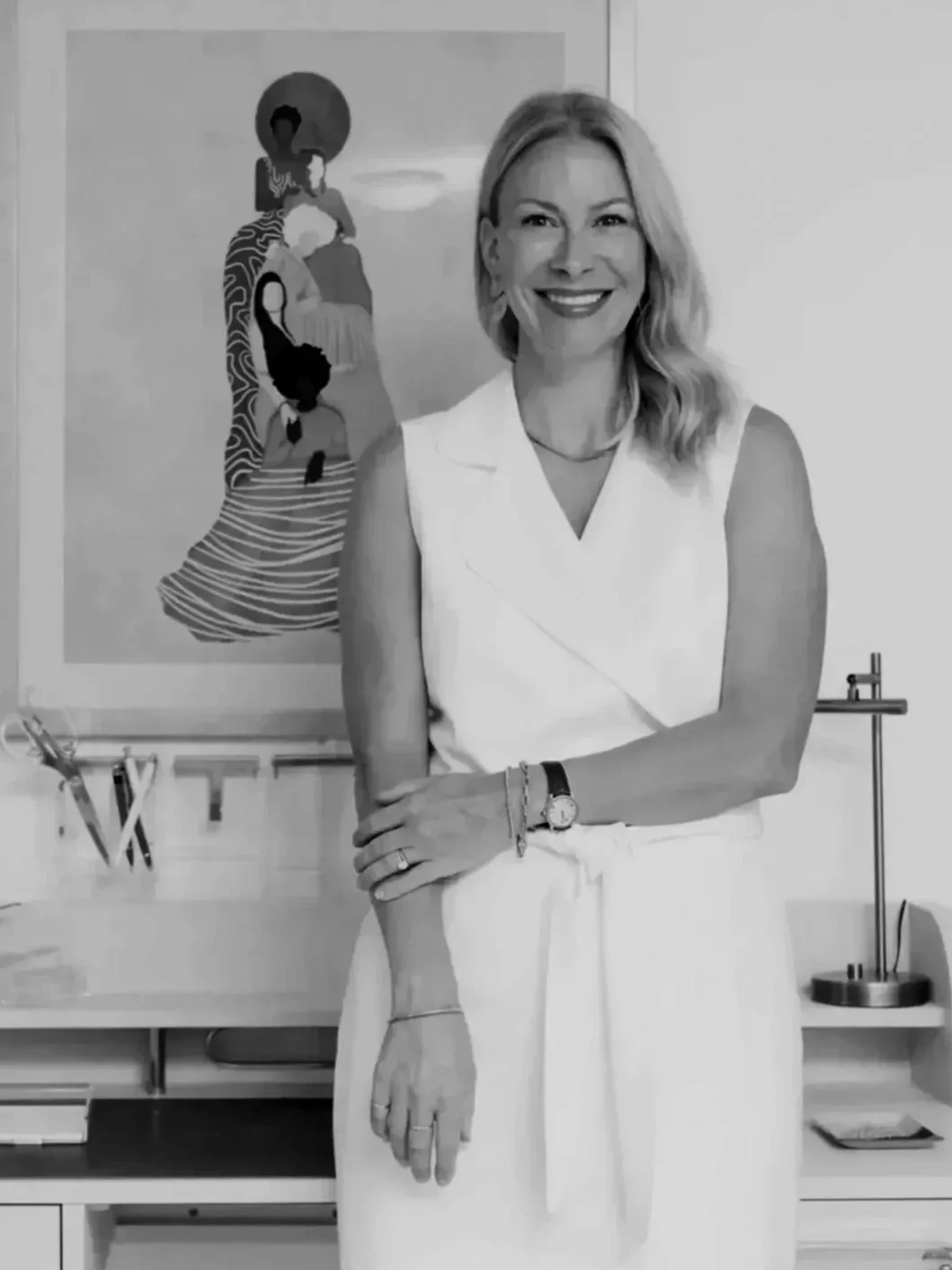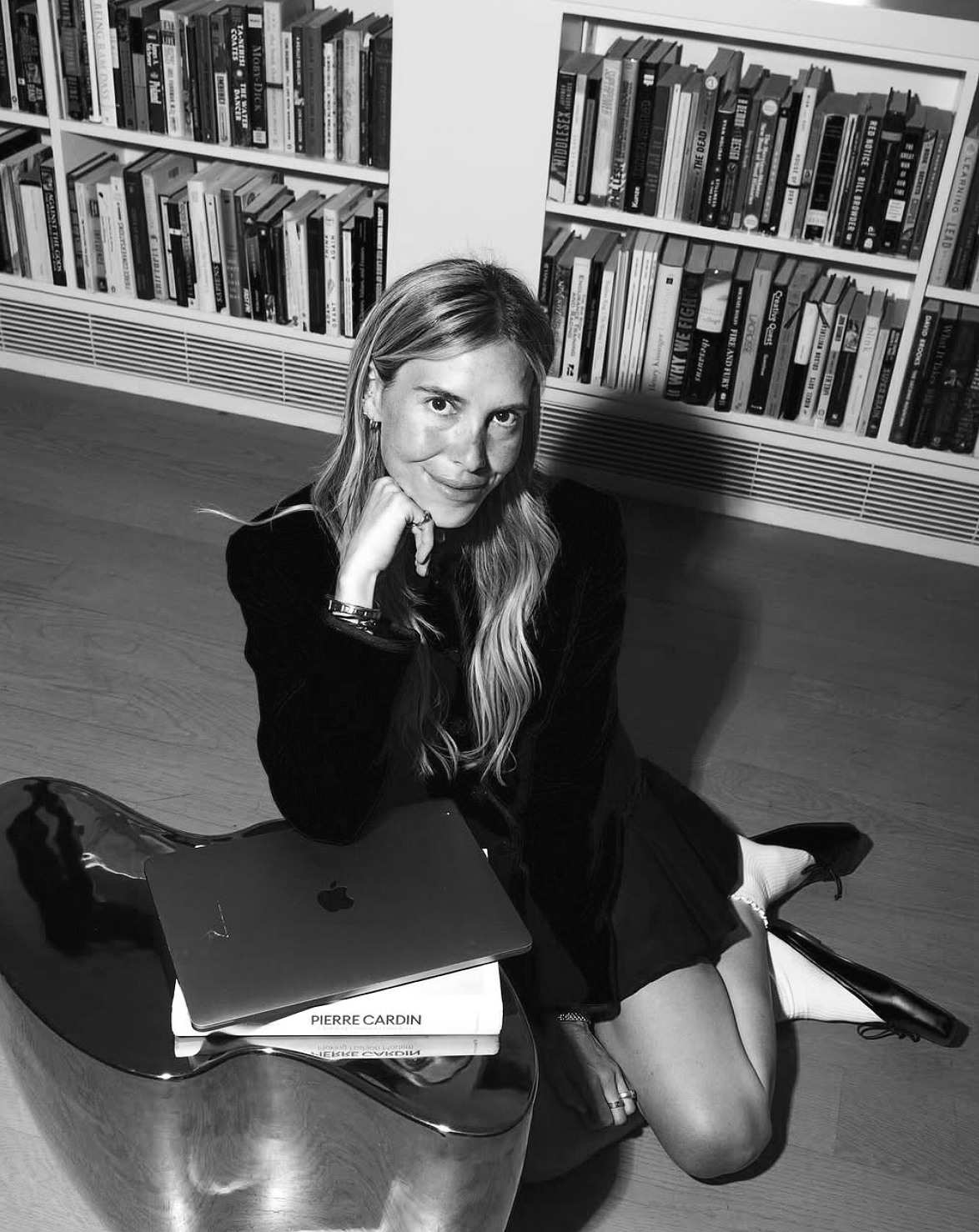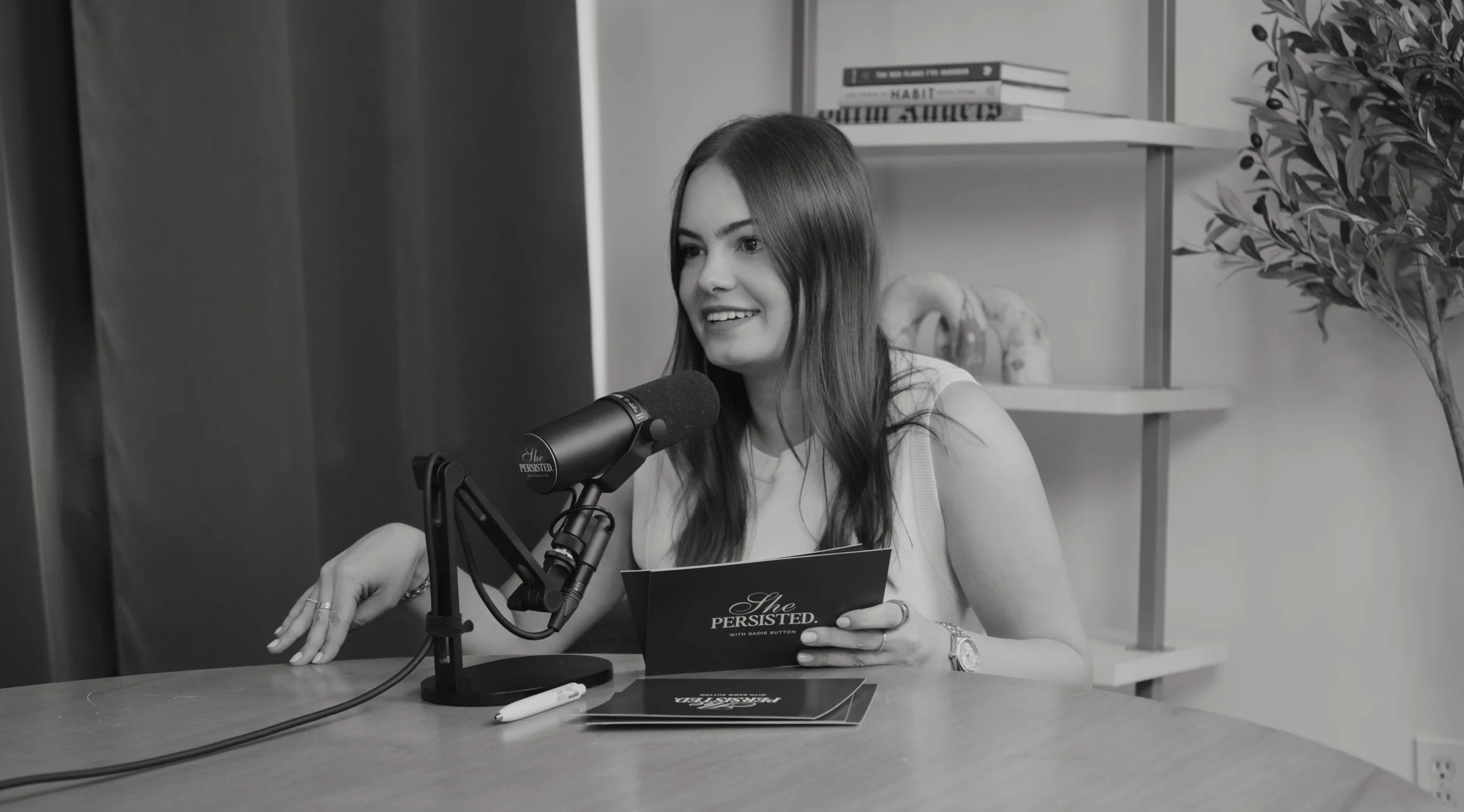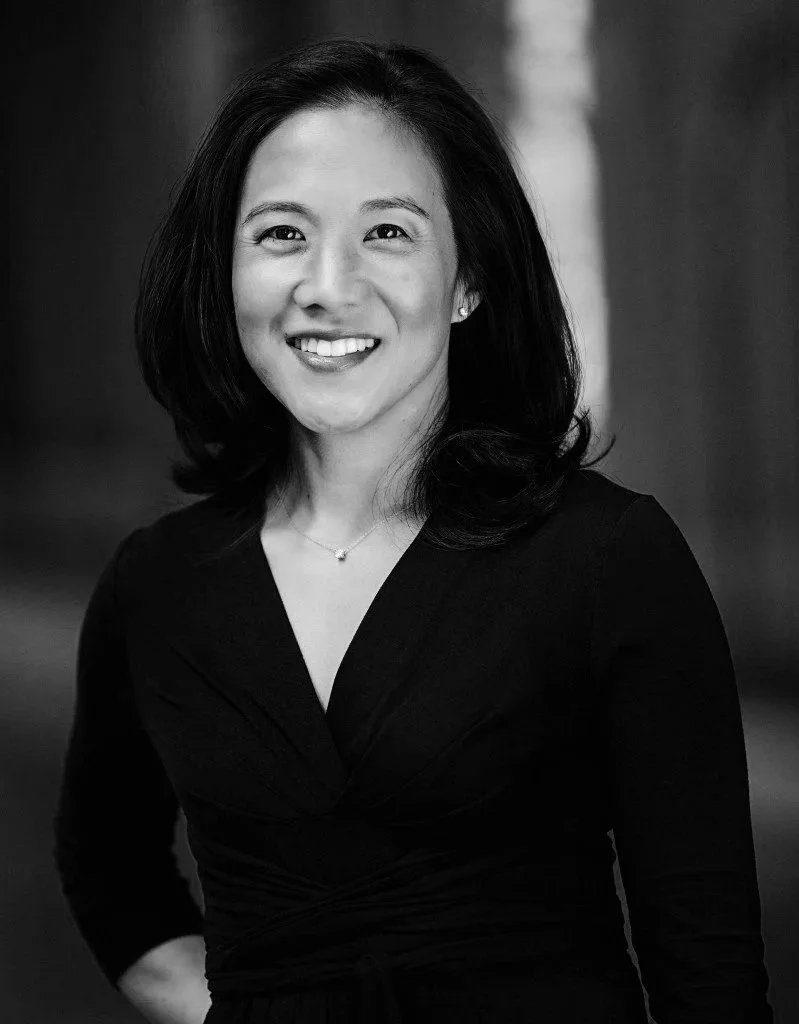235. society is shaping women’s core beliefs… so let’s rewire them feat. kara loewentheil
listen to this episode:
Tune in and subscribe on your favorite platform: Apple Podcasts | Spotify | YouTube | Amazon | GoodPods | Castbox | iHeart Radio | overcast | pocketcasts
today’s guest is kara loewentheil—a nyt bestselling author, ivy league women’s rights lawyer turned master feminist coach, practical philosopher, and the founder of the new school of feminist thought. she also hosts a top-rated podcast, unf*ck your brain, and started her own coaching program designed to help you live life on your own terms.
in this episode, we discuss negative core beliefs + anxieties that our society programs into women and how women can rewire their brains for the better.
we talk about:
how kara went from an ivy league women’s rights lawyer to a feminist coach
key differences between therapy + life coaching you need to know
ways our (often unconscious) beliefs run our lives + how to reevaluate them
experiencing socially programed anxiety as a woman
self-doubt + figuring out whether your thoughts are ‘valid’
the ‘brain gap’ between men + women in our society
doing the work to rewire your negative core beliefs
the core issue that most women are struggling with today
gaining confidence + how to go about that
what’s really causing the male loneliness epidemic
whether gen z is moving in the right direction with relationships + dating
Mentioned:
SHOP GUEST RECOMMENDATIONS: https://amzn.to/3A69GOC
About She Persisted
She Persisted is THE Gen Z mental health podcast. In each episode, Sadie brings you authentic, accessible, relatable conversations about every aspect of mental wellness. Expect evidence-based, Gen Z-approved resources, coping skills (lots of DBT), insights, and education in each piece of content you consume. She Persisted offers you a safe space to feel validated and understood in your struggle while encouraging you to take ownership of your journey and build your life worth living.
a note: this is an automated transcription so please ignore any accidental misspellings!
Sadie: [00:00:00] Welcome to She Persisted, the Gen Z Mental Health Podcast. I'm your host, Sadie Sutton. Let's get into it.
Kara: So I think that like so many women I work with come in and they're like, I don't know why I'm so anxious around dating and relationships. Like my parents were happy. There wasn't any emotional or physical problems in my home.
Like I wasn't raised in a way that would suggest this would happen.
And I'm like, yeah, but society raised you that completely valorized romantic relationships as the be all and end all of your value and worth. So like it's actually a rational response. How would you not be anxious?
Now we can change it. but we need to understand that that's a pretty normal way to respond.
Hello. Hello, and welcome back to She Resisted.
Considering the name of this podcast is pretty safe to say that I have a special place in my heart for all things. Female mental health, we know from research and of course lived experience that the female experience plays a really big role in mental health, especially when we're looking at things like self-worth, core beliefs, anxiety, and so much more.
So who better to discuss this with than Kara Loewentheil a feminist [00:01:00] coach host of the super popular podcast, unfuck Your Brain and a New York Times bestselling author. She has some really interesting perspective and insights to give on female mental health, including what's responsible for a lot of women's core beliefs, their anxiety and the brain gap that exists between men and women, and why that matters when it comes to mental health and the number one core issue she believes women are experiencing today.
And how to go about rewiring unhealthy thoughts to become more confident and empowered. So if you are someone who is struggling with self-doubt or talking negatively to yourself, and you want to know why that is and what you can do about it, you are going to get so much from this episode.
And if there's areas in your life that you wanna gain confidence in from dating to your career, to even how you see yourself as a person, we touch on all of those topics in this episode and so much more. So without further ado, let's dive in.
Sadie: I am so excited to have you on Chief instead. You've been a dream guest for such a long time. I've had the podcast for at least five years now.
And yours is one I've always seen on the top charts tune into many a [00:02:00] time. And so I'm really excited to have you on the show today.
Kara: Thank you and congratulations on five years. That's a good run.
Sadie: Thank you. I'm definitely not a weekly, haven't skipped a week podcaster all the, like, admiration to the people that do that.
If times are like busier or it's stressful, a week gets skipped. But it has been a while. We have quite a few episodes out there.
Kara: Yeah, you've been doing other things. Listen.
Sadie: Well, I would love, to dive into so many things in this conversation. We're gonna talk about belief systems, we're gonna talk about societal programming, how we can deprogram.
But to get started, can you give us a quick rundown on your background? Because you also have your feet in so many different areas, law, philosophy, communication in a big way. , Can you give us a little bit of background on how you ended up doing this incredible work and being an expert in this space?
Kara: Yeah, absolutely. So I had a kind of conventional career path to start out with. I went to college, I went to law school. , I went to Ivy League schools, was very focused on my like [00:03:00] professional accomplishments, and I was a women's rights lawyer. And like a lot of women, even professional, successful, accomplished women.
I had a lot of self doubt and a lot of second guessing and a lot of people pleasing. And I kept like achieving the next thing and hoping that that would make me feel the way I wanted to feel. , Just grabbing all those brass rings and maybe 10 years into that process I just started to be like. I don't know man, if the first 19 brass rings didn't do it, I'm not sure This 20th one is gonna be the thing that solves all my emotional problems.
And so I got very interested in, I had already gone to therapy, but I got into like coaching and learned about coaching, worked with a coach or two, some of which were good, some of which were bad. And then I discovered the kind of coaching that I now do, which is very cognitive focus coaching. It was not feminist oriented at all.
It was just tools for learning how to become aware of and change your thinking. But it, this concept was not as widespread back then. So when I first heard, I mean this was 10, 12 years ago, [00:04:00] I was like mind blown, like, what do you mean you can change the way you think and that's like what's impacting how you feel?
And so I did the normal thing you do when you're on track to becoming a life professor, which is quit legal academia. Become a life coach and an entrepreneur, which I had no experience in and had never done before. And that was about 10 years ago. I got certified 10 years ago as a coach, and I started my business one year later.
So I've been in business for nine years, , and now I am a feminist confidence coach. I run the School of New Feminist thought, which is my company, and we're a seven figure coaching business. I have a podcast on Fuck Your Brain, and I am the author of the New York Times Bestseller. Take Back Your Brain.
So I really work in this intersection of, , helping women develop more confidence by changing the way they think, and particularly learning to notice the ways that society has taught them to think and change those thoughts specifically.
Sadie: So we're gonna dive into the power that beliefs hold, how they're [00:05:00] impacting our lives, how we do that.
We are a mental health podcast, so a lot of listeners are probably familiar with the idea that we can shift our thoughts. Maybe cognitive behavioral therapy, , is something that comes to mind. You mentioned coaching versus traditional therapy. Can you offer a little bit, , of differentiation there for listeners who've maybe only been to therapy or only seen a coach or never done either of kind of how those are different and why coaching might be a fit , in a certain context versus therapy.
Kara: Yeah. Yeah. I can give you both the like standard cookie cutter answer and then what I really think is the answer. Yes. So like the standard cookie cutter answer is therapy is for helping people get from like dysfunctional to functional or like unhealthy, mentally unwell to well, and then coaching is for helping people get from.
Good to great or functional people who want to improve their lives, change a habit. You know, something that basically like, you're fine, you're functional. Nobody would say that You are not. You know, so that's what like you get trained to kind of say, and it's not that that's not true, but for me I think of it as much more of a VEnn [00:06:00] diagram.
Mm-hmm. I think of it more as like there are some things that it would not be appropriate to treat only with coaching. So like if somebody is having a psychotic break, coaching is not gonna be that helpful in that instance. Right. But I think that especially the work I do is really about how women talk to themselves and their relationship with themselves.
And even when you have a psychiatric or psychological diagnosis and you're working with a psychiatrist or a therapist, a lot of my clients are, and they're doing coaching also because. Let's say you have a psychiatric diagnosis and it could be like a quote unquote serious one. You have, you know, you have bipolar, you are, you have schizophrenia, whatever it is, but you're, you know, stable and functional right now.
You have so many thoughts about what that means about you and like, whether you're, I mean. There's so much second guess women second guess themselves. So much that I coach people who are like, but I'm not sure if I really have that problem. Or maybe I just kind of like made it up or tricked people into thinking that, or like, maybe I just really need to get my shit together and there isn't really anything wrong with me.
Like it goes so deep. So [00:07:00] I talk about coaching as something that isn't always, often isn't the only tool we need. You might also go to yoga or do meditation or go to therapy or whatever else. But it's a tool that pretty much everyone needs because no matter what's going on, if you have any kind of control of your faculties, being aware of how you're thinking about yourself and changing that makes your life better no matter what else is going on.
Sadie: Yeah, there's a very parallel kind of framework in DBT where yes, people typically think of DBT as like very crisis intervention. And a lot of people do it in that short term framework. But when you look at like how it's actually lined out, we have these different stages and those later stages of like truly building the life worth living, , and creating these.
habits and lifelong routines and healthy relationships that some of the most important work you can do in therapy, and it's not when you're in crisis mode Yes. Or actively struggling or in the throes of a mental health crisis. And so. I completely agree that a lot of the important work that is done in mental health [00:08:00] and building a life that you are really proud of and enjoy on a day-to-day basis happens outside of that crisis therapy intervention is needed immediately.
Mode, which I think gets missed a lot when we think about, okay, what is therapy? Why, why would you need therapy? Or why would I wanna work with someone, whether it's a coach or a therapist, to shift things in my life?
Kara: Yeah, we have this, I think it's like leftover from the days when, like nobody's really supposed to talk about their thoughts or feelings.
And if you had like an acute crisis, you went to. Psychologists or psychiatrists and otherwise like you shouldn't even be discussing it, right? Yeah. Like you just were supposed to like, or you could grow by
sadie: yourself. Like why didn't you need a life? Yeah. You just live
Kara: the life that society told you to and do what everybody else is doing and like shove down all of your feelings.
And that's why all this housewives had to be on like speed and downers all the time too. Cope, right? And like as we have progressed, we are starting to understand more of the idea of okay, no, there's like other areas where maybe we're not in crisis or dysfunction, but like
sadie: yeah.
Kara: Things could be better.
And I think it absolutely overlap with DBT, also a CT, acceptance and commitment [00:09:00] therapy and also like Buddhism and meditation. Yes. And like, you know, there's, I really think of it as like humans have always needed help. Human ing, like being a human is hard and complicated and like people have always needed.
Someone to talk to who had perspective, who could offer, not really advice. I don't advise people on what do. Yeah. But who could offer, I mean, some of what I do is a lot of what like Socrates was doing with his students. Like
sadie: yeah. How
Kara: do you know what you think? You know, like what is the good life you want to lead?
What are your values? Like interrogating received wisdom and interrogating what society has told you.
sadie: Yeah.
Kara: About who you're supposed to be and how you're supposed to live. So to me, like the coaching I do really is. Some of all of those things,
Sadie: Yeah, I, I completely agree and I'm a big believer that like if something like DBT or a CT or these like really, , deep philosophical perspectives help in such extreme situations, why wouldn't you apply those to those things that maybe aren't impairing and distressing in your life?
Like, why wouldn't you use those same principles to make things better? And a coach oftentimes can help you apply those [00:10:00] frameworks in a way that's easy to understand. And maybe they're the ones that are a specialist in making those. Non super impairing, distressing shifts, , in a way that's really effective and cohesive, , and feels really supportive, which is awesome.
Kara: Yeah. And I think in my experience, even I get a lot of people who've come to me who've done a lot of ccbt. Mm-hmm. For instance, and the two things that have been missing are, and that's not always, it just obviously depends who you work with or whatever. Yeah. sometimes they've done a lot of CBT, but no one spent enough time with them on the physical emotional connection.
Mm-hmm. It's just a lot of like mental they're doing while they still feel horrible. Mm-hmm. They're just like filling out the worksheet and like, maybe it takes the edge off the anxiety, but it's not really. They're sort of, I tend to attract people who wanna be like brains in a jar. 'cause my work is very cognitive focused.
It's a little bit of a bait and switch. I'm like, well talk about your thoughts. And then they come in, they. Just kidding. You have feelings stew. , So that, that's one piece of it. And or the other one is, , no one has taught them how to actually believe a different thought, which I [00:11:00] understand because no one taught me that either I had to figure it out and turn it into something.
I could teach like the very concrete steps of like how you find a thought that's believable right now that is moving you towards the thought you want to believe. Again, that connects, you can feel in your body. Like there's a lot of CBT happening out there that is like. Just jumping over that last step sort of is kind of like, here are some reframes.
Here's a different thing you could think.
sadie: Yeah.
Kara: And then it just skips the part where you have to like actually see if you believe it. Does it resonate? Are you getting any emotional payoff? Is it actually changing anything in your brain? Totally. it's like giving someone a prescriptions, like go to the gym and then just being like, okay,
Sadie: best of luck.
Yeah. Could not
Kara: do a lunge. And you're like, I don't even know what, what.
Sadie: Yeah. Yeah, a hundred percent. So we touched a little bit on the fact that beliefs can have a really strong impact on our lives, the way we interpret situations. We can also change them. Can you speak a little bit to how powerful these are?
And. How they're impacting our relationships or jobs [00:12:00] or the way we view ourselves. Because I think this is something that we, again, kind of just like accept at face value and don't realize that we could shift it, or even that maybe it would be a good thing to shift it, even if it's not completely distressing or causing a ton of impairment yet.
So like how powerful are those beliefs? What are they influencing in our lives?
Kara: Yeah, that's the, that's the subject of a whole book or perhaps a whole career. Yeah. But I'll give the short version. Yes. I to me, what this work is about is like, people often come to coaching and they, what they wanna do is quote unquote, fix themselves to better conform to whatever society's told them they need to be.
So it's like. It, it's taken for granted that like, of course you need to be married to be happy and successful if you're a woman, or of course you need to make a certain amount of money, or of course your body needs to look a certain way or of course you need to be able to. Parent a certain way or want kids or love parenting or whatever, and what, and they don't even notice that there's all these premises embedded in that, right?
It's like, well, yeah, I need to get over my anxiety of [00:13:00] dating or my dead end relationship so that I can get married. 'cause that's what I want, right? Mm-hmm. And the coaching is like. Okay, before we try to achieve an objective, like why are we doing that? I'm working on a coach training right now and that's one of the big things that I think differentiates the way I do this coach training from anybody else is like, people are trained to just like help their client achieve a goal.
Why? Why do we pick that goal? What is that goal about? Where did it come from? What is it you're telling yourself? You will feel if you get it right? We get socially programmed that Your life should look like this, and then you know you're successful and you'll be happy. So we're trying to get an emotional outcome by changing a circumstance.
And we don't even really, it doesn't even really come from us necessarily. And like I am married and I'm happily married. It's not like I'm against these things. Like I have a successful career. I am proud of it. Like it's not that I'm against doing any of these things, but the programming is so deep that connects our value and our worth to conforming with.
These social gender roles. [00:14:00] And so when we're trying to like fix ourselves, quote unquote, or make ourselves better, or even, you know, self-improvement as a field or as a technique or whatever can be used in a way that is self-supportive or that is really just self-abuse in another form. So, yeah. I think it's about looking at all the different social messages that women get about what makes them valuable and who they're supposed to be, and like interrogating those.
'cause they impact everything. If you think you're supposed to always be nice, how does that show up in your life? Right. Fear of conflict. Fear of negotiation. Like never saying what you really think. Dating people. You don't even like being in jobs. You don't wanna be in marrying people. You don't even like having friends that you don't even like, like.
These beliefs show up in every facet of our lives.
Sadie: Yeah. You have talked about how not only can we have these socially programmed beliefs, but we can have socially programmed anxiety, which is so interesting. Can you explain a little bit about how that works and how that would happen? Because I think one thing about anxiety is that it's so insular, it's [00:15:00] so isolating, and so the idea that it could be, obviously some of these things are external, you're right, like I'm anxious about jobs, I'm anxious just about relationships.
I'm anxious about these things. But it feels really like that belief is originating from within, like you talked about. Mm-hmm. And there might be these external causes. So how does the anxiety come into play? How is that socially programmed?
Kara: Yeah, so I think, I think that our explanations for anxiety are generally that either a circumstances directly making you anxious or that you are someone with like just.
Internal inherent genetic anxiety, right? Yeah. Or potentially like trauma induced anxiety, but sort of it's either coming from like something in your brain that has nothing to do with the outside world, or the circumstances are making you anxious. Mm-hmm. And I think what we're missing is that you could be taught to think a certain way, such that you respond to circumstances with thoughts that make you anxious.
So for instance. If you are socialized to believe that you should be thin in order to be considered attractive, and that a woman needs to be considered attractive in order to be considered valuable,
sadie: mm-hmm.
Kara: Then. [00:16:00] You are going to experience a lot of anxiety about your body being perceived, and that is not because your body is inherently anxiety producing in the way that it looks.
Yeah. And it's not because you'll have generalized anxiety disorder, it's because you've literally been taught a set of concepts that would of course make a person anxious if they believed that, right?
sadie: Yeah.
Kara: Similarly, for. You know, if women are taught that they are responsible for all of their children's behavior and that if a child ever misbehaves, that is a reflection on the parents, but really the mother.
sadie: Mm-hmm.
Kara: Right. So if you are taught that. And you are out and about and your child is having a meltdown, you are going to have anxiety about what other people are perceiving about you. And again, that's not because a child having a meltdown is inherently anxiety producing. Yeah. It's the meaning that you have given it, which society taught you, which is like, oh my God, everybody's looking at me.
They know I can't control my kid and I'm a bad mom and blah, blah, blah. So I think that like under so many women I work with come in and they're like, for instance, you know, like, I. I don't know why I'm so [00:17:00] anxious around dating and relationships. Like my parents were happy. There wasn't any emotional or physical problems in my home.
Like I wasn't raised in a way that would suggest this would happen.
sadie: Yeah.
Kara: And I'm like, yeah, but society raised you in a way that completely valorized romantic relationships as the be all and end all of your value and worth. So like it's actually a rational response. How would you not be anxious?
Now we can change it. But it's happening. It makes sense that you're anxious about these things because what women do then is gaslight themselves and be like, this is so silly. I shouldn't be anxious. I know I shouldn't feel this way. It's like, well, no. I mean, if society teaches you that X thing is inherent like important to your survival, your brain is programmed to obsess about that thing.
Yeah. So we need to like, we can change it, but we need to understand that that's a pretty normal way to respond.
Sadie: How do you work with clients to differentiate if it's socially programmed or like you said, it could be something that you're doing that maybe is reinforced by society, but it's not [00:18:00] necessarily motivated by that societal belief.
Like how do you differentiate between whether it's that external influence or if it's internally aligned with your, your goals and, emotionally makes sense, in that context.
Kara: People, women especially come in and it's sort of like they're, they're like, are my thoughts valid? Kind of. Yeah. Like, are they justified? Justified? Yeah. Right. But I'm like, well, what does that even mean? It's not, it's like saying, is my kidney justified?
Mm-hmm. Like, it's just a thing your brain does. What I really want to encourage women to switch to as a question is like, is this thought useful? Am I getting a feeling and action out of this thought that I want? Do I like the results that I get? When I think, feel, and act this way. So one of the reasons that I really like this cognitive form of work, and I teach a coaching model that is kind of based on the CBT model, but with some expansions is that, and it's in my book for anybody who buys my book, it's like it gives you sort of a test to run anything through.
It's like, when I think this, how do I feel? How do I act? Do I like the outcome I'm getting?
sadie: Yeah.
Kara: [00:19:00] You could spend your whole life debating with yourself about whether a thought is true or not, or justified or not, or valid or not. I'm really, a lot of what I do is tell women, like, don't ask yourself questions that have no answers.
sadie: Yeah. Yeah. There's
Kara: no point. I mean, if you were having a philosophical inquiry about the meaning of life, fine, but most of the time you're asking yourself a question that can't be answered that's like, did I make the right decision?
sadie: Mm-hmm.
Kara: Is this feeling justified? Am you know, it's just like you're never gonna get an answer and you're just trying to think your way in circles to feeling certain, and that never happens.
Mm-hmm. Whatever, whether it's true or not valid or invalid, it's like that's not even a concept that makes sense. It's just when I think this way, how do I feel and act and do I like what I'm getting from that?
sadie: Yeah. So
Kara: it kind of doesn't matter whether like your family taught you the thought or society taught you the thought or your brain just like mushed everything together and spit up the thought.
The reason that I teach about socially program and anxiety is that, , I think it helps women start to see a lot of things that were background to them. Like they looked at a wall and it looked like [00:20:00] that's just how a wall is. Yeah. Yeah. It helps them start to be like, oh, that wall is actually made up of like all these tiles, and I could take some of those out.
They don't have to. They're not natural and inherent and required.
Sadie: Yeah. I, I love that. And I think another aspect of that that's really important is that your feelings about a belief or thought or decision, whatever it is, can change and evolve with time. So it gives you the grace to, for something to be the right decision or the right belief at one point in your life, but it can evolve and shift later on.
And that, again, is valid and justified and not wrong if that shifts and changes based on your lived experience.
Kara: Yeah. People come to coaching, they're like, okay, great. So now I know the right approach, so now I just need to make sure I always have the right thought going forward using this tool. And I'm like, no, that's what we're doing.
Yeah. There's no such thing as like the right thought, the right action, the right, you know? Mm-hmm. Like I think about chaos theory all the time of like, you know, a butterfly can flap its wings in one place, then you have a tsunami [00:21:00] somewhere else. Yeah. That is the, you know, the result of like 6 million different little fractal things that had to happen from one to the other.
Mm-hmm. So. Given the true complexity of the world, we get to decide if we wanna think there's right decisions and wrong decisions. And I know if I made the wrong one, and then, you know? Yeah. Or if we wanna think like I make decisions, I take action in the world, circumstances evolve and I continue to show up to meet those.
I often am really encouraging women to switch from. What's right, wrong? What was good or bad? Did I do it well or not?
sadie: Mm-hmm.
Kara: To what are my values and how do I show up in a way that is aligned with my values? So it's like shifting it from the sort of external test I can pass or fail to an experiential.
How do I show up in my own life based on the person I want to be?
Sadie: For sure. You've talked a lot about women's experiences with socially programmed beliefs or how they are navigating these experiences, thinking about them. [00:22:00] Yeah. Can you explain to us the brain gap? Because I think this is a really interesting thing that you educate women on and explain.
And you touched on this a little bit, but I think it's really interesting to be aware of before you work to shift these beliefs, , or even like do an audit of, okay, like how am I thinking about things? What beliefs have I just accepted as is versus. are aligned with my lived experience. So what is the brain gap, especially as it applies to these belief systems?
Kara: Yeah, so the brain gap I think of as having two levels. The first one is there's a gap between how men and women are socialized. So I think men are socialized more often, not always that. You know, they just sort of have inherent worth for existing. Like they don't have to constantly be performing certain roles to justify their worth.
Again, that's a big generalization. Depends on your family, but the social message. It's sort of like, you know, men don't have as much second guessing generally of like their desires, their wants, their preferences. Like it's not so fraught. Women are socialized to believe [00:23:00] that their worth and value are contingent.
They have to be earning them at all times by conforming to social expectations, and that their worth and value can be determined by basically triangulating the opinions of everyone who's ever met them at all times. Which
Kara: is, you know, maddening of course, because people have all different. Beliefs. Yeah.
They aren't even about you anyway and they don't all agree. But this is why women feel so exhausted all the time. So then the second level of the brain gap is the gap that we feel, especially if we know about psychology or we know about fism or whatever else, there's this gap like what we want to think and feel, the kind of person who we wanna be, what we think they would think and feel, or what we're told we should think and feel, and then how we actually think and feel.
So to give you an example, like when I was, Single and dating. I was already very feminist. I would've told you that. I like didn't think you should need to be partnered to. Prove anything, that there's nothing wrong with being single, that you don't, you know, women have a destiny beyond romantic relationships.
I was very focused on my career. I had not been raised by a [00:24:00] family that was fixated on marriage and relationships. Like my family was very like your career's number one. So it didn't, I was an example when my clients were like, I wasn't raised in a way that would make you think I would be like this. So I was like.
Raised to value my career. My political were about women being independent, whole people. And yet I was so obsessively fixated on dating on like what some dude on Tinder, whether they were gonna like match me back or chat me back, or how long since they texted me. Like my self-esteem was totally dependent on people who I like at best had met.
Three days ago and didn't know their last name. Yeah. And at worst we're just like icons on the screen, not even real people yet. So that is like a great example of the brain gap where I want to believe, and I do believe all these things intellectually for other people, but not for me. Right. Like my emotional reality is not matching.
Like the values I purport to hold or what I want to think about myself in the world. And so that is this brain gap that is created because, you know, the thoughts I had about like [00:25:00] being feminist, being independent, those were thoughts I had gotten, you know, maybe middle school at the earliest, maybe in high school and college.
I learned more about these things. But the socialization about women and romance started when I was zero. Right. Like I had so long of that programming before anything else even came. Right. Watching Sleeping Beauty, watching Cinderella, like what's in the media? Are people, what are people saying born into?
Right. What are people saying to little girls? Like, oh, you're so pretty. Oh, you're beating, you know, you can have a, do you have a boyfriend yet? Whatever. what women often experience is that disconnect, and they often will phrase it as like. Well, you know, I think this, but I just feel this. Mm-hmm. And the truth is no, they're both thoughts.
You just have learned different, your brain was literally, it's sort of like computer programming. It's like code was written at different times and it's just like stacking on top of each other.
sadie: Yeah.
Kara: And until you do the work on purpose to rewrite that code for yourself, you're always gonna have these like conflicting programs that are running at the same time.
Sadie: So how do you [00:26:00] rewrite that code that is like so solidified, it's been there for so long. , And even if you have competing beliefs that you've really worked to solidify, it's still showing up in relationships, self-esteem, workplace, whatever it is. How do you work to rewire those?
Kara: Yeah, so if you think about a big gap, it's like everybody wants to jump over the gap, but actually you have to build a bridge over the gap, step by step.
I teach this in the book, , it's a concept called the Thought Ladder, which is, this goes back to what I was talking about before where like a lot of people have been through CBT or something else, but like don't actually know how to change a thought.
sadie: Yeah. They
Kara: know how to like brainstorm a reframe, but then it just, it's like another program they're writing on top.
Yeah. Right. It's not actually addressing the problem.
sadie: Mm-hmm.
Kara: So the thought ladder walks you through, like, how do you actually. Build that ladder. And of course, we're all in such a rush and we just wanna like change it immediately and get to the end of it. And women will often say to me like, well, I've already been working on this for so long, and I'm like, no, you haven't been working on it.
Yeah. You've been thinking a bunch of [00:27:00] conflicting thoughts and beating yourself up about it, that actually none of that time counts. That wasn't like, that wasn't practice. You weren't on the JV team. That was nothing like, we're starting from zero, so. You have to learn how to come up with thoughts that you can believe now, which means you can feel a physical change in your body when you think them.
You can't tell if you believe a thought just in your head or on paper. Your body is the compass that tells you, do you believe this thought? So you have to learn the skill of coming up with those thoughts. And in the book I give a bunch of like different kinds of sort of prompts, like ways of qualifying your thoughts, basically to like.
I'm open to believing that it's possible that my brain might be wrong about this. Like it's like little bitty steps and then you practice that until it just seems natural and then you do the process again and like this is how you build an actual bridge or thought ladder step by step. You can't just vault over the gap.
Sadie: Yeah. Is there like a core belief or a core experience, like maybe [00:28:00] it's. how people view themselves. Maybe it's self-esteem, maybe it's like desire to be loved and seen. Like is there a core thing that a lot of women are building these thoughts from or working to address, or it's just so different based on their lived experiences?
Kara: I think it's both because I think the core thing that we're always working on. The core like wound of socialization for women is the idea that they don't have internal worth, inherent worth, or value. Nobody like says that to you directly. It's just that you pick up that your worth and value are always being connected to things that are about how you look or how you serve others, or, mm-hmm.
Whatever else. They're always sort of these external focus. So I think that is the core thing that I'm working on women with in a million ways. But a lot of women come in and they may know that and they're like, I just wanna work on my self-esteem. Yeah. But my experience with coaching is really that you can't work at the 70,000 foot level down.
So any given thought ladder is actually much more effective when you're starting with [00:29:00] one specific thing. Like it's possible that even if Brian doesn't wanna go on a second date with me. I'm still a lovable person, right? Mm-hmm. Like, so you're, you're working from the specific to the general, and eventually as you get to know yourself, yes.
You start to realize like, oh, I have three to five core thoughts that are always coming up about myself and you, you know, you get better at recognizing them, and you can kind of work with them at that more abstract level. But I definitely wanna encourage anyone who's listening to this. , read the book and do the exercises, like nothing is too small.
sadie: Yeah. And that's
Kara: the objection I often get is like, well that's so small. I shouldn't care about it. I'm like, great, but you do care about it. Great place to start. It's perfect. So like, don't yourself you shouldn't. That's not helpful. You do. It's fine. It's human. Yeah. To care about that and. It's much easier when you try to like attack the big thought.
That's like your core belief about yourself. Yeah. Your brain is gonna lose its shit, right? And you're gonna get so much resistance. Whereas when you start with something small, it doesn't really realize that you're like the Trojan horse. Your brain is like not [00:30:00] as, not as defensive about it.
Sadie: So what is the like. I, I like hate using the phrase end result, but like what does this outcome look like when you work to address these beliefs? You work on that core belief about worthiness. It impacts your self-esteem. Presumably relationships as well. Like what is the outcome that people are working towards?
'cause I think because so many of us have experienced the socialization, we might not even know what the alternative would look like or what to expect, what you're working towards, which is hard.
Kara: I think it's living a confident life and confidence doesn't really it the confidence. I don't mean like walking down the street and feeling like you look good.
Like that's a part of confidence. Yeah. But a confident life means like you're confident in making decisions. You're able to make decisions. You are confident in your own value and worth, and it not being attached to how much money you make, or if this particular person wants to stay married to you or.
Whether you yelled at your kid, whatever. It's really like the core thing is this different relationship with yourself women think [00:31:00] that self-love is this like magical destination that they're gonna get to, and then it's like rainbows and fairies forever. And they always feel good about themselves.
They never have a negative thought, and I always am teaching them likes. Self-love is just a relationship with yourself like you have with anybody else. The model for it is the best relationship you have in the rest of your life. Yeah, maybe it's your friend, maybe it's a partner, maybe it's a family member.
It doesn't mean that you're not sometimes annoyed. It doesn't mean you're not sometimes like, well, I don't really love how you made that decision or what you did there, but there's this like baseline, unconditional acceptance and love and respect and like that is what we're trying to have with ourselves. And
Kara: when you have that, I think that you just. It's like you show up fully in your life. You live a life you won't regret when you die. Like you say the things you wanna say, you are the person you wanna be, you take the risks you wanna take you, whatever. But that part for everybody's so different like some people.
Wanna be the CEO of an international conglomerate. And some people wanna raise goats in Vermont.
Sadie: Yeah.
Kara: And some people [00:32:00] are maybe both. So it's like,
Sadie: would love to see how you balance that. Please let us know we're goats. It's like
Kara: I'm trying international, actually not international, but like we have a house upstate and I would like to get some goats, but it's like, it's really like living the life that you actually wanna live.
Sadie: Yeah, for sure. We talked a lot about the female experience. I would love your thoughts on the male loneliness epidemic. Do we think that is like that? , Gender gap shifting and closing, like kind of that belief that there's not that innate worthiness and maybe it's they're not having the relationship.
We see men falling behind in these other areas, whether it's academics, the job market, relationships, mental health. Do you think that there's something related there where there is more of that socialized experience or completely different?
Kara: Well, first of all, I think people mean really different things by the male loneliness epidemic.
Sure. Like some people are talking about whether men have friends and some people are talking about how women should have more sex with them. Yeah. So like means, I'm sure, you know, it means very different things. I absolutely think that like [00:33:00] society and the way. You know, society's vision of masculinity is terrible for men also. Like
sadie: Yeah.
Kara: Men are raised to not have their feelings and to shove everything down and, you know, best case scenario, be a provider who takes care of everyone else and doesn't care about themselves. Worst case scenario, be an entitled jerk. Yeah. So like, I absolutely think that the, you know, patriarchy's not good for anybody.
Mm-hmm. And I think the way that men are socialized, leads to. The, the real part of male loneliness, not the insult part, yes, but the like, you know, the, like less common to have close friends, less, you know, social connections, social relationships, more, you know, more, you know, in some ways men are really socialized, even though women are more socialized at having a partner has to do with their value and their worth.
Men are more socialized that like the only person you would be emotionally intimate with is your wife and maybe not even her. So I do think that their socialization leads to loneliness. I just saw a article actually about how the data on, the educational [00:34:00] achievement gap is somewhat overblown that actually, like from as long as women have been allowed to be educated, women have always outperformed men in education.
It's not actually like that really a new phenomenon.
Sadie: Fascinating. I'm not surprised, but about women, male performance is so interesting.
Kara: yeah, I mean, I, I focus on women. People socialize as women. Yeah. I've often kind of wished that somebody would come along who did this kind of work for men and we could like partner on it.
Yeah. 'cause I think there is so much need. , But I also think everything, I mean, my husband read my book and was like, , a lot of this feels familiar to me. Yeah. So like the way I kind of think of it actually is that like. A lot of what I'm describing, like the emotional kind of patterns that lead to like low self-confidence, people pleasing, all that kind of stuff.
You can get it either from your family or from society. Mm-hmm. Women all get it from society and then some of them also get it from their family. So some people get one serving, some people get two servings.
sadie: Yeah.
Kara: For people socialize as men. They don't get it from society. Some of them do get it from their family, so like.
If you were raised a certain way with a [00:35:00] certain kind of family, you might read my book and be like, oh, this sounds a lot like me. Even though I was not socialized as a woman, the difference is that men aren't also getting that second helping from society. So like they're getting one helping or no helpings, but women are getting one helping or two helpings.
Sadie: Yeah. I think there's also when you were talking about like, do you move through the world with the belief that you're innately worthy and we are thinking, okay, like Historically male worthiness was protecting, providing, and depending on the context you're living in, that's kind of no longer a given that you're protecting and providing.
And maybe it's harder to provide or there's no one to protect. And so I think there's that similar kind of gap between what you. Believe your worth should be and what your life looks like. And so I think a lot of parallels and it'll be interesting to see however long it takes for us to figure out what's going on here and what's an effective way to address it.
But I imagine that will be a big piece of it as well, because it's been so helpful for women who've experienced that gap. And I imagine for men as well. [00:36:00]
Kara: Yeah, I mean I think there's like a weird, a lot of this stuff is weirdly ahistorical in that we're told that like X, Y, Z is the natural way, but it's actually pretty recent.
sadie: Yeah. Right.
Kara: So like. For instance, men, some of them were protecting and a lot of them were abusing, like some of them were providing, and a lot of them, their wives were providing women
sadie like gathering. And if we
Kara: go back to hunter gatherer society, everybody's participating in communal labor.
Right? And the same for women. This sort of like the idea that like. A woman's place is in the home and not working like that has not been the case for most of human history, for most people. Yeah. Right. It's just this sort of very recent ideology and propaganda, which is why understanding the socialization is so important because it comes dressed in this like naturalness discourse.
Yeah, Which is like really not what was going on. And it's very specifically also like white and middle and upper class coded. Right? Like poor women, women of color have always had to work, or for women of color were enslaved. And so the idea of sort of like. A housewife who's sitting at home and just enjoying raising her children also really only exist in the fifties for upper middle class white [00:37:00] women.
And they were all on drugs literally to deal with it. So yeah, like it's not really natural.
Sadie: For sure. My last question for you is about Gen Z and I'm curious if you think that we're moving in the right direction as far as the beliefs that we're carrying and how we're trying to address them.
Like, what is your advice there? It was a big
Kara: can of worms for the last, I know. I think because it's a good term to
Sadie: address them before you're set in stone with like, relationships? Yeah. Or your career or all of these kinds of things.
Kara: So I feel like there's amazing things about that generation seems much more, , you know, there's downsides to the Instagram therapy world.
Yeah. But like, people are, mental health is a much bigger conversation. People talk about it more. there's more embrace of alternative of like lots of different lifestyles, lots of people's different, just like there's more variety kind of mm-hmm. Allowed in some ways. I should also say I'm not an expert on this 'cause I'm 43, so like, what the fuck do I know?
But, but from the outside, , the downside I see is that I think that like, [00:38:00] there's been a little bit of a weird turn in what, at least like online culture considers feminism. And a lot of it is, I have somebody in my life who was dating someone like this recently and it was like very wild to watch. It's sort of that like, that feminism is like men like having to earn your attention or time, men needing to.
Pay for your time or attention. It's almost like sort of taking what we would've called previously, like professional escort or sex work and turning that into like the model of a feminist relationship in a weird
Sadie: way. Yeah.
And I think it's like reverse patriarchy
Kara: almost. Yeah. The problem for me is more just is like, that's not what intimacy is like.
That's not what being a human is like. Yeah. And I think I end up coaching a lot of women who feel like feminist shame about like. Doing any emotional labor in their relationship, and I'm like. relationships are emotional labor. Yeah. Like both people should be doing it. Totally. But like, it's not inherently anti-feminist to like help your partner figure out what [00:39:00] they're feeling.
so I, I think like, and I, that's not to say only this generation has that issue. I think obviously it's just a human issue, and you know, I will also just from my like feminist credentials, say I've been a professional feminist my whole life.
Like I was a reproductive rights litigator, then I was an academic and now all I do is teach women about their brains. So I feel like my bonafides are pretty good. And you, and you know what? I am a cis straight woman in a heterosexual marriage. And like, yeah, I help my husband figure out my feelings and he does stuff for me.
Like it. So I just, there's a little, I don't know if I'm articulating this, but it just feels sometimes like there's this like. Objectification commodification thing happening and a sort of like pur, it's almost a version of purity politics, which is like something I could do a whole other podcast about.
And from the psychological perspective, it's like all of that stuff is from black and white thinking and an attempt to feel in control and safe and know the right answer when human intimacy is inherently messy. Yeah. And it's two people who both. Have good and bad things to offer in a relationship.
Yeah. And like, [00:40:00] you know, There's something about the online amount of like time and social media consumption that seems to contribute to that alienation. And I know that's going on in a lot of ways. Like there's all the social discourse about like, are people having less sex and does that, is that good or bad?
And why? you know, and more people being happily single I think is awesome. Like we've been way over focused on, you know, marriage and our culture. But I do think like. I definitely have an old fogy response to things like AI, companionship, where I just am like, I think that messy human intimacy is like how humans have grown and had connection for thousands of years, and I don't think that we're ready to just psychologically swap that out for a computer.
Sadie: Totally. I, I think you identified something that does definitely resonate, which is like that very like insular experience and the zero sum game that's existing there. It. I feel like I've noticed it a lot as well. Not only in like how do you approach dating and the idea that they have to earn like attention or all these types of things like you were saying, where it's [00:41:00] very not equal.
And then also with like the male loneliness conversation when we're talking about it from like true loneliness. Yeah. And not feeling worthy. the idea that, well, women have struggled for so long, so why would we help you? Mm-hmm. And again, that idea that like in fact, when we support each other, that is extremely effective for both.
People like it not only helps us when we help others, but if it's reciprocal, like that's what leads to a really healthy and balanced relationship and balance school. Yeah. And like you don't have
Kara: to, right? It's, I don't think it's a moral obligation. Oh, if you don't want, but if you want an actual, it's not family.
If you do, yeah. But if you want an actual human relationship, you're just gonna have to
Sadie: Yes. Right. Mean there's, I love that
Kara: there is no partner, no matter how educated he is on ever the things he's supposed to be educated on, or she is on things she's supposed to be educated on, who's going to like. I mean, it's really just a version of being like, you need to fulfill all my needs, and then I'll consider.
Like being intimate with you. And that is just not how human exchange works. A hundred
Sadie: percent. And [00:42:00] I, I love that caveat of like, it's, it's not that you are innately expected to do that, however, if you choose to support someone or help them navigate something, or they're helping you navigate an emotional town, just not a failing.
And I think we, we forget that, that like, okay, we're losing points for feminists. Men need to figure this out for themselves. And I think,
Kara: right, it's like the same people who will often be posting about wanting like community care networks. I'm like, well, I think men are gonna have to be included in that.
Sadie: So it seems like they need them guys. Like it's not looking too good. But also
Kara: we, we need, you know, like there's just, you need multiple kinds of humans in your network.
Sadie: A hundred percent. A hundred percent. Well, if people want to get your book, listen to your podcast, get coaching, all the things, where can they do that?
Kara: Yeah, so my book is available anywhere books are sold. It is called Take Back Your Brain. It is easier than spelling my last name. My first name's Easy, KARA, take Back Your Brain so you can get that anywhere Books are sold. My podcast is Also Easy to find. , And those are the best ways you can follow me on social media at Carl [00:43:00] Lental.
And we actually are. Right now. the only thing you can join is a wait list to work with me, but we will be launching something new and big in December. I'm really excited about, so you can always Google me find the website, but by the book start there.
Sadie: Amazing. I'll put all of that in the show notes.
Thank you so much for joining me. I know people are gonna find this conversation really helpful.
Kara: Thanks for having me.
Sadie: If you enjoyed this episode of She Persisted, make sure to leave a review, subscribe, and share with a friend or family member. Follow along at at She Persisted podcast on TikTok, Instagram, YouTube and more for bonus content. Thanks for listening and keep persisting.
© 2020 She Persisted LLC. This podcast is copyrighted subject matter owned by She Persisted LLC and She Persisted LLC reserves all rights in and to the podcast. Any use without She Persisted LLC’s express prior written consent is prohibited.






